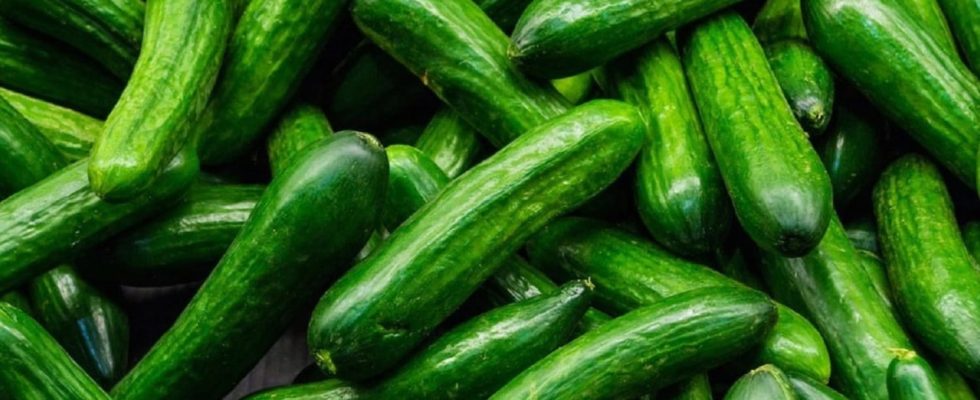Due to the high heat, some cucumbers can develop an unpleasant flavor which, in addition, can make you woozy. Here’s how to recognize them.
Cucumber, with its crunchy texture and refreshing taste, is a staple in summer salads, tzatziki, or simply enjoyed sliced for a light break. However, sometimes you come across a cucumber with a bitter taste, far from its usual sweet flavor. If the taste experience is far from pleasant, the reasons to avoid consuming a bitter cucumber go beyond simple culinary disappointment.
Bitter cucumber gets its unpleasant flavor from cucurbitacins, natural chemical compounds. These molecules are present in small quantities in normal cucumbers and are generally undetectable by taste. However, due to environmental factors, such as water stress or improper temperature during growth, a cucumber can produce excess of it, giving it that characteristic bitterness.
Cucurbitacins are not just responsible for the unpleasant aftertaste. They can also cause difficulty with digestion. Consuming bitter cucumbers can lead to nausea, abdominal pain, diarrhea, and vomiting. Although rare, consumption in large quantities can even be toxic.
The deceptive aspect of bitter cucumber is that this bitterness is not always evenly distributed. Sometimes only part of the cucumber is affected. However, when cooking with a bitter cucumber, even if only a portion is used, the bitterness can spread throughout the entire dish, spoiling an entire meal.
In order to avoid ruining your culinary preparation or experiencing adverse effects, it is wise to always taste a small slice of cucumber before integrating it into your dishes. If you detect a bitterness, even slight, it is better to exclude this cucumber from your recipe.
Although the level of cucurbitacins can be influenced by environmental factors, the choice of cucumbers when buying can also play a role. Go for cucumbers that are firm, without spots or wrinkles. Also, varieties bred specifically to be low in cucurbitacins, available in some specialty stores, may be a solution for those who have already encountered this problem.
